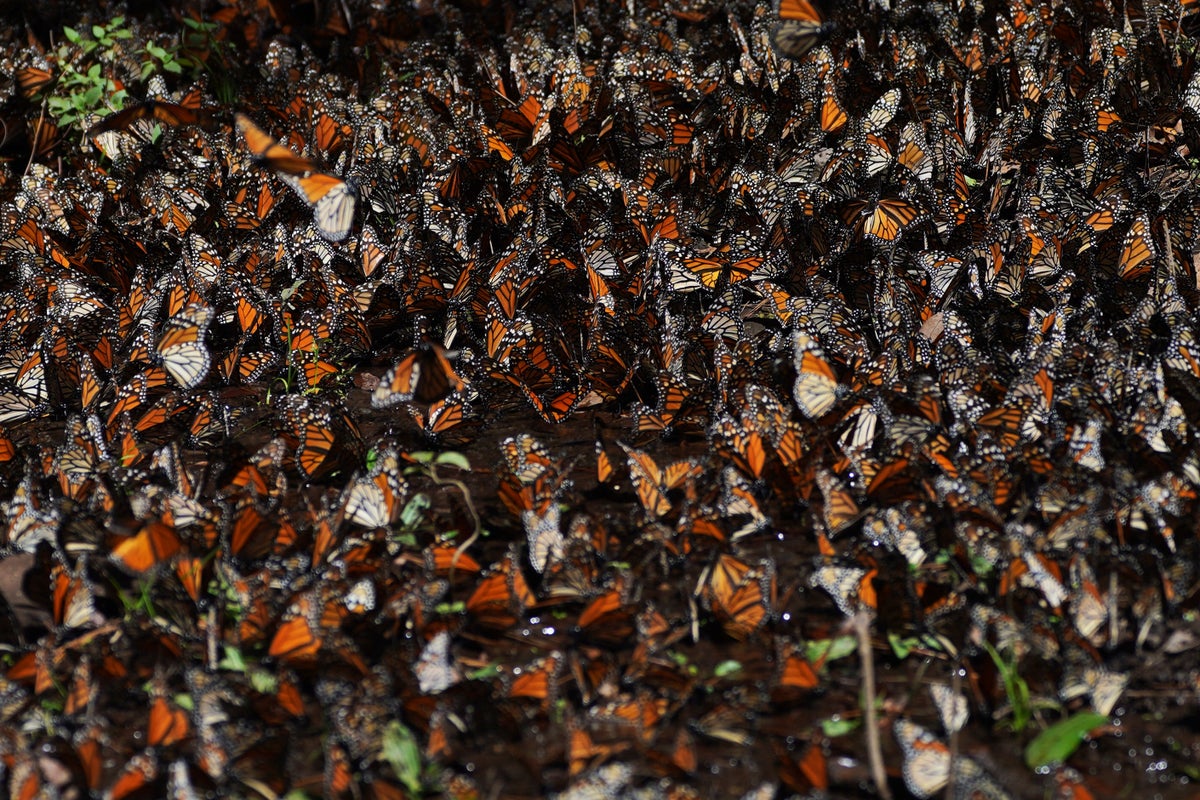
The number of monarch butterflies wintering in the mountains of central Mexico dropped by 22% as compared to the previous year, and the number of trees lost from their favored wintering grounds tripled.
Frosts and “extreme temperatures” in the United States may have played a role in the butterfly’s decline during the most recent winter season, said Humberto Peña, the director of Mexico’s nature reserves.
Monarchs east of the Rocky Mountains in the United States and Canada overwinter in the fir forests of the western state of Michoacan, west of Mexico City. The total area they occupied this past winter dropped to 5.4 acres (2.21 hectares), from 7 acres (2.84 hectares) last year.
Gloria Tavera, the conservation director of Mexico’s Commission for National Protected Areas, said the area of forest cover appropriate for the butterflies that was lost rose to 145 acres (58.7 hectares), from 46.2 acres (18.8 hectares) last year.
More than half the tree loss this year was due to removal of dead or sick trees affected by fires, storms or pests. But experts did not explain why tree removal spiked this year, and critics say in the past those reasons have been used as a pretext for felling trees for timber.
The annual butterfly count doesn’t calculate the individual number of butterflies, but rather the number of acres they cover when they clump together on tree boughs.
Each year the monarchs return to the United States and Canada on an annual migration that is threatened by loss of the milkweed they feed on north of the border, and deforestation in the butterfly reserves in Mexico.
Due to a myriad of factors, monarch numbers have dropped in recent years. Experts say drought, severe weather and loss of habitat — especially of the milkweed where the monarchs lay their eggs — as well as pesticide and herbicide use, and climate change, all pose threats to the species’ migration.
Illegal logging also continues to plague the reserves, but it dropped slightly this year, in part due to the efforts of inhabitants.







